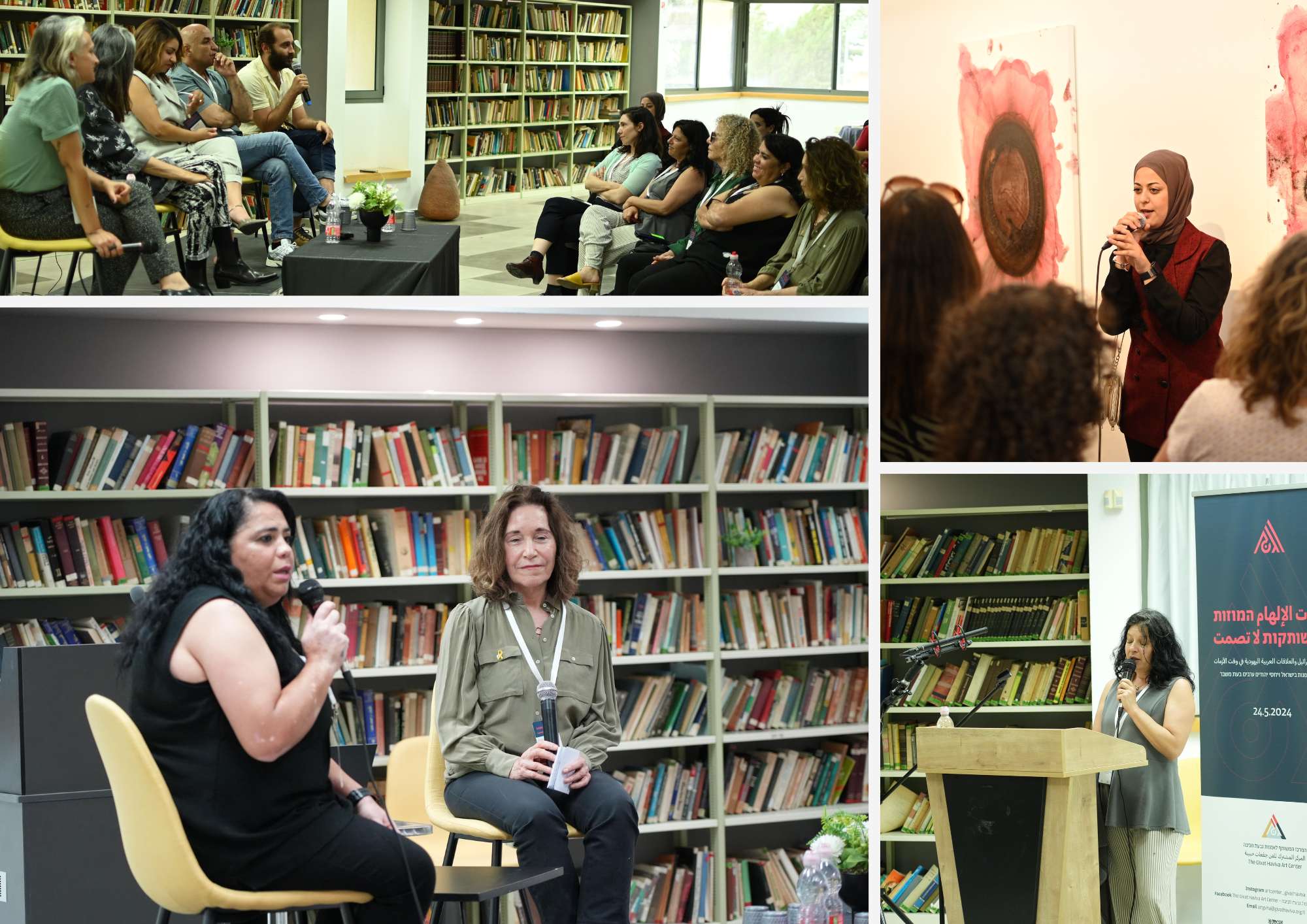Last Friday, the Givat Haviva Shared Art Center hosted "The Muses Are Not Silent" conference. The event tackled the crucial question of art's role during wartime while fostering a safe and open space for expression and dialogue between the Israeli Jewish and Arab art communities.
Michal Sella, CEO of Givat Haviva, opened the conference, emphasizing the need for inclusivity and spaces for free expression: "We are engaged in art, art education, and the promotion of young artists, Jewish and Arab, because we have an interest in giving space for expression and providing an opportunity for cross-fertilization, acquaintance, and learning. To open doors and equal opportunity in every field, including art."

Anat Lidror, Director of the Shared Art Center, addressed the role of art in exposing complexity, especially at such a polarized time both in Israel and around the world: “This field carries within it the freedom for a fundamental and deep change of insight and awareness, a change that is possible when you really get out of the box, old orders and manage to imagine differently."
The highlight of the conference was hosting two amazing artists, one Palestinian and one Israeli, for a one-on-one conversation: Hanan Abu Hussein and Yael Bartana. Unfortunately, we learned that the deep pain cuts across communities, silencing Arab artists and forcing Jewish artists to self-censor their expressions of solidarity with Gaza's suffering. We understood that this is a commonality that we must address together.
The conference panel on the power and role of artists in times of war and crisis brought together leading Arab and Jewish artists and curators. It gave us an interesting and complex glimpse into the world of artists and culture at this time.
Farid Abu Shakra, an artist, researcher, and activist in this field in Arab society, spoke about the need to break the cycle of victimhood. He emphasized that, as an Arab Israeli citizen, he does not want to live as a victim of the victim anymore.
Dalit Matityahu, Senior Curator of Israeli Art at the Tel Aviv Museum, spoke about the symmetry between what is happening in the policies here and in Gaza and the existence of two messianic, violent powers with a concept of redemption. Each side claims that it is the victim. This situation of reflection—the mirror situation we are in—is fascinating from an ideological point of view but painful in every other way.
Alaa Dakka, an Arab actor and singer, spoke about the dangers inherent in the laws and reforms in the world of culture passed under the radar in the shadow of war, such as the film laws that the Minister of Culture is currently promoting.
Sabrin Hogirat, a representative of the Ministry of Culture, promised to do everything in her power to implement a call we issued to encourage initiatives of dialogue and joint action between Jews and Arabs in the field of art.
While the conference was dedicated to discussing the role of art in times of war, it was also a tremendous opportunity to expose the public and the community of artists and curators to the joint residency program for young Arab and Jewish artists and to the fact that it managed to take place in such a polarized period.
The conference reinforced and sharpened the feeling that art is a firm ground in such a catastrophic crisis. Therefore, the field of art has an important role and power these days, certainly in artistic activity but especially in creating dialogue between the parties and trying to create a joint position that will address Israeli society and even the international art community.
Read more about the residency program in Shirin Falah's compelling article this month in Haaretz.